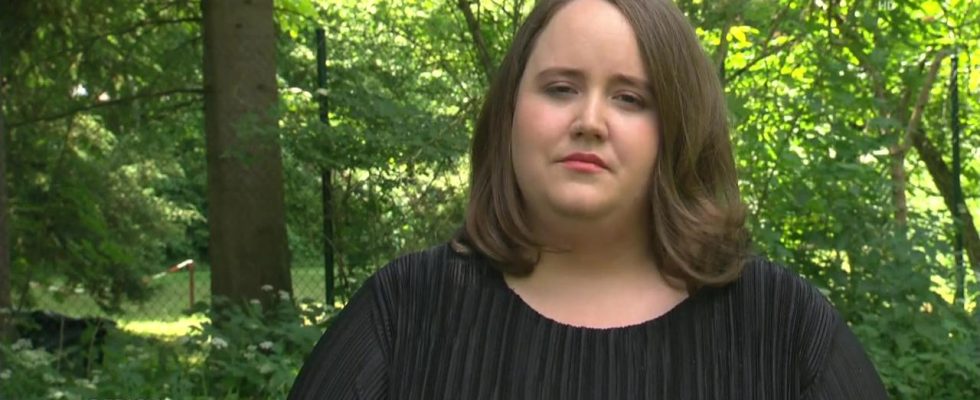The leader of the Greens, Lang, was confident Report from Berlin: A breakthrough in the dispute over the heating law is possible in the coming weeks. This requires a pinch of pragmatism and a social component.
In the discussion about the planned heating law, Greens leader Ricarda Lang expects an agreement to be reached soon. In the Report from Berlin She said it was about making yourself independent of fossil fuels and thus also more independent of autocrats like Russian President Vladimir Putin. This also creates affordable prices, explained Lang, and protects the climate. “Now the factions have to make progress,” said the Greens politician. “But I also believe that we will make a breakthrough in the next few weeks.”
According to Lang, the heating law, which is officially called the Building Energy Law (GEG), must be “more pragmatic on the one hand and more social on the other”. That’s where the proposal made by her party comes in. “As Greens, we proposed: 80 percent for people with a low income – so it’s no longer remotely more expensive than a heat pump – and then socially staggered.”
Oil and gas heating as a cost trap
Continuing to rely on oil and gas heating is a cost trap, explained the co-chair of the Greens. “In a few years – from 2027 at the latest, when certificate trading is also applied to heat, i.e. the CO2 prices for gas and oil rise – they will then be faced with unaffordable heating costs.”
When it comes to the controversial topic of heating with wood, Lang insists on pragmatism. In some cases, wood or pellet heating makes sense – “for example, if a village relies on domestic residual wood waste and then uses it for local heating”. But wood is also a valuable and scarce resource that needs to be protected. The fact that wood imported from Brazil is burned in Germany and the Amazon rainforest is cut down for this should not happen, she explained.
Künast relies on compromises
The Greens politician Renate Künast called for a willingness to compromise from her party. “We have to get the GEG coordinated with the coalition partners, even if we find parts of it insufficient in the end,” she said “Zeit Online”. “For me it is ethically unacceptable not to have a vision.” It is just as unacceptable not to make any compromises and thus prevent “at least a little progress.”
Künast acknowledged the Greens’ communicative errors. “We have not adequately explained the necessity and the social motive for this law and therefore have not prepared the law sufficiently well,” said the member of the Bundestag. It should have been made clearer that the purpose of the law was to protect people from rising energy costs.
“No one should be overwhelmed at any point”
Chancellor Olaf Scholz defended the heating law against criticism. The law is being examined in all directions in the Bundestag with a single goal: “No one should be overwhelmed and have to do something that he or she cannot afford,” said the SPD politician to the broadcaster Antenne Bayern. The current version is quite different from a draft bill that has not been discussed to the end.
The plans of the traffic light coalition envisage that from the beginning of 2024 every newly installed heating system will be operated with at least 65 percent green energy. The switch is to be socially cushioned by state funding. There should also be transitional periods and hardship regulations. However, the FDP calls for fundamental changes.
The coalition leaders had agreed to pass the law before the summer recess in the Bundestag. This has been the subject of heated debate for months. Criticism comes from the coalition itself, but also from the opposition. The Bavarian Prime Minister Markus Söder (CSU) took part in a demonstration against the law in Erding near Munich on Saturday.

